Effy Alexakis the photo-chronicler of the Greek Australian has been invited to exhibit at the Sydney Greek Festival now celebrating its 40 years. She selected one image to represent each of the years since 1982.
“This exhibition is my commitment the Sydney Festival, and I acknowledge how the community, and Greek media, have backed me for so long.”
Along with her collaborator, historian, and husband, Leonard Janiszewski, Alexakis has told the story of the Greek Australian Diaspora since the early 1980s.
She burrows deep to reveal a palimpsest of Greek Australian experiences – personal, gender, generational, cultural, political, and social.
“We [Leonard and Effy] have had numerous exhibitions on the theme, we focused on women, on Greek gold miners, the history of Greek Milk Bars, the changing generations – it’s a huge subject.”
Some say she documents a cultural “ghetto history”, however Alexakis knows that subject of her people has opened her to other things.
“I work as a professional photographer that’s how I get my bread and butter, but this is what I do to make Leonard and me happy, to fulfil us and give meaning to our life.”
“When the Greek Festival suggested we do an exhibition, I wanted do something that also talks of my 40 years, so I selected 40 photos, one for each of the years.”
Alexakis’ challenge was not only selecting one photo per year, but the technological divide between pre-digital and digital epochs.
“I had to go through all my negatives, that’s a challenge because the last 10-15 years are digital, I had to marry the old technology with the new, and in a new way of working.”
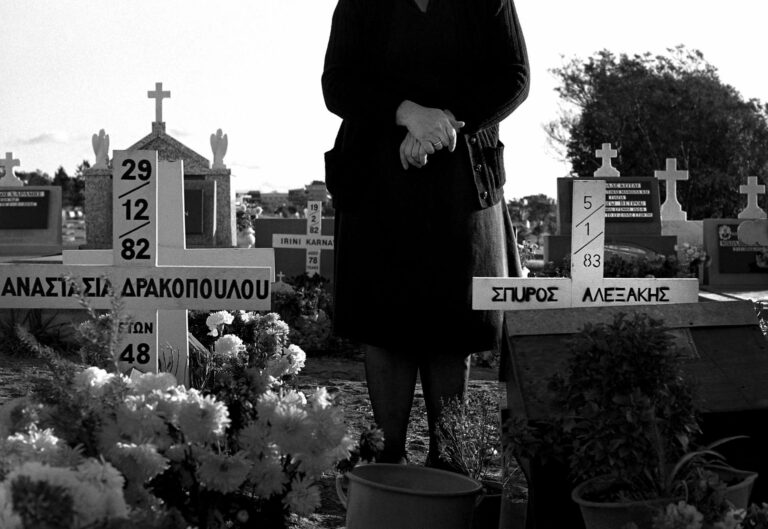
Decades of work, examined over months, some classic images, some never exhibited, some personal, and some with different meaning now.
“There are some strange ones, like the one of Yiannis Varoufakis as a guest speaker at Management School at Macquarie University – he’s peering out from behind the curtains, it’s only his face, but it’s so recognisably him, it was 2015 the year he resigned as Greece’s Finance Minister, so he was doing a tour around other countries.”
Alexakis, has not only caught the polemical anti-European Union ex-finance minister of Greece, but she caught the actor, looking at the stage and the audience, ready to perform.
Alexakis says that Varoufakis is a “naturalised Australian” and part of the Diaspora. Greece “plays a huge role” in what she does.
“It’s the basis of the migration experience and Leonard and I kept going back a lot, in 2013 in the middle of the Financial Crisis I did a little exhibition here at Macquarie University on how I saw the Crisis.
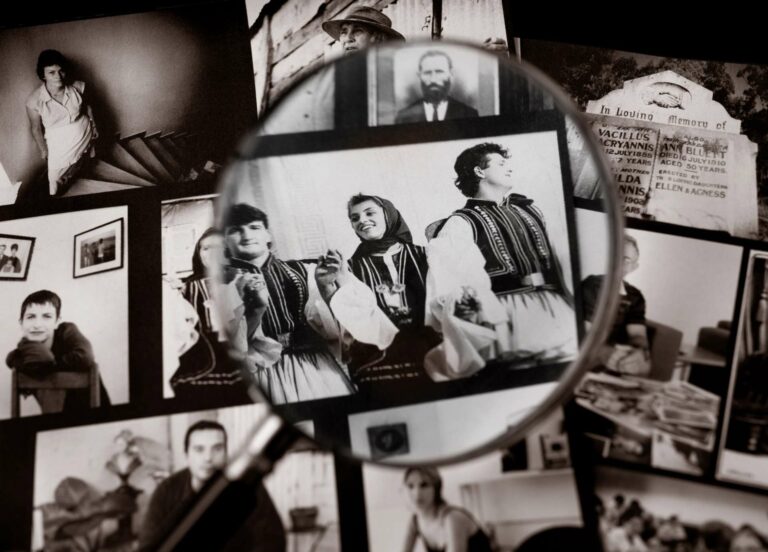
The ‘In Her Own Image: Greek-Australian Women’ exhibition was initially launched at the Exhibition Room, ACT Legislative Assembly, Civic Square, Canberra in 2004.
“I have a photo a of beggar lady walking through the crowd in the exclusive Athens suburb of Kolonaki. Everyone is having coffee, oblivious to a woman hunched over begging, it reveals the truth of the financial crisis and its impact on human beings.”
Alexakis’ exhibition is also a personal journey that references the photographer’s own family, community, and culture – in Australia and overseas.
“I have a photo of my parents at their shop in 1982 before my father died, and then a photo of my mother at my father’s gravesite.”
The photographer is very aware of the generations passing away, but she’s not overly fixated on it.
“All generations pass, it was the ones from the 1920s, then the ones from the post-war period, it’s natural.
“All this hype about it, the expectation that someone else will do it, but everyone can document their own personal histories, let family personal histories become primary resource for the future history.”
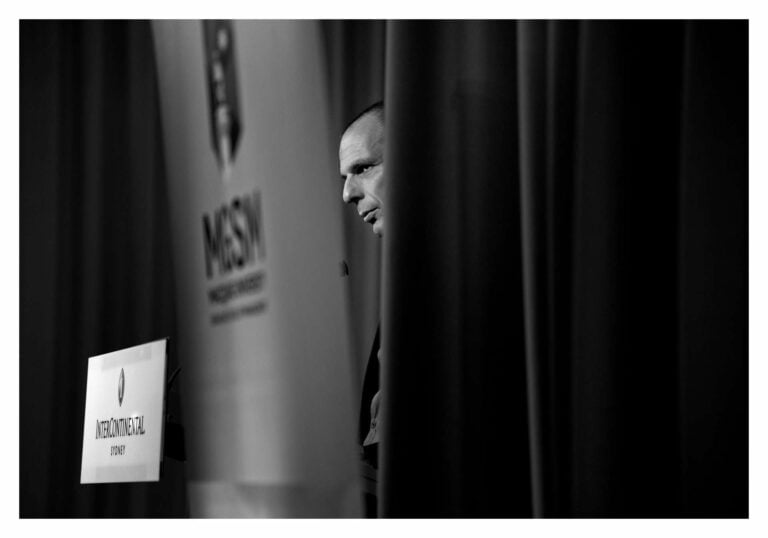
Even if many of us are now in the middle class, and we have drifted from the worlds Alexakis has documented – we are still part of the migration story.
“The intangible notion of Hellenism connects us and while we may not know each other well, we know each other as Hellenes and as Greek Diaspora.”
Ethnographic photography leaves behind artefacts. People, history, events, fixed in time, however alive in that precise moment of capture. Yet, photo documentation is largely overlooked in Australia. Few Australian photographers deep dive into communities and periods. Alexakis recalls that in the 1990s photographers such as “Emmanuel Santos and Dennis Del Favero” along with her led a movement to document Australia’s diasporas.
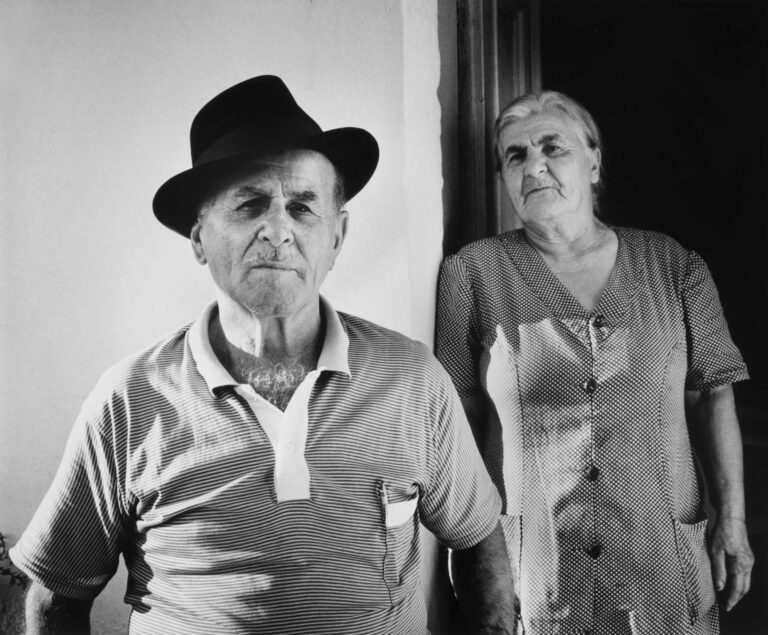
“There were few and far between it was something only some of us did, we were on the outer margin, so we just persevered.”
Santos went on to photograph the global Jewish Diaspora, Del Favero essayed Australia’s Italian community. In Australia photography must fall within the confines of contemporary art, and then advertising, news, and entertainment.
“For a lot of photographers, the ultimate is to show at a mainstream art gallery, but it’s very hard for documentary photographers to do that, it’s not as accepted.”
That does not happen in Europe, Asia, or North America.
“In Athens young photographers are doing amazing documentary work, it’s so it’s hard to imagine that these young people are going in that direction, it’s so honest, it’s so good see, it so grungy – a really great document of the time.”
The collaboration with husband Leonard Janiszewski, has borne amazing outcomes partly because as Alexakis says the clear delineation.
“He’s a historian, I’m the photographer, we stick to our own area, sometimes there are battles, he will have a brilliant story, but I’m not happy with the photo, then we negotiate, we do not disrespect each other’s role, and that really binds us.”
Elexakis tells the story of years ago when they went to Fiji for a holiday with their daughter who was around thirteen.
“On the way to the resort Leonard saw sign that said Milk Bar my daughter said, ‘no, no, no this is meant to be a holiday.’ We left the resort and began to engage with the local community, as well as the people that ran the Milk Bar, it was amazing.”
It’s often hard juggling a family, she says, but it also builds “resilience and happiness.”
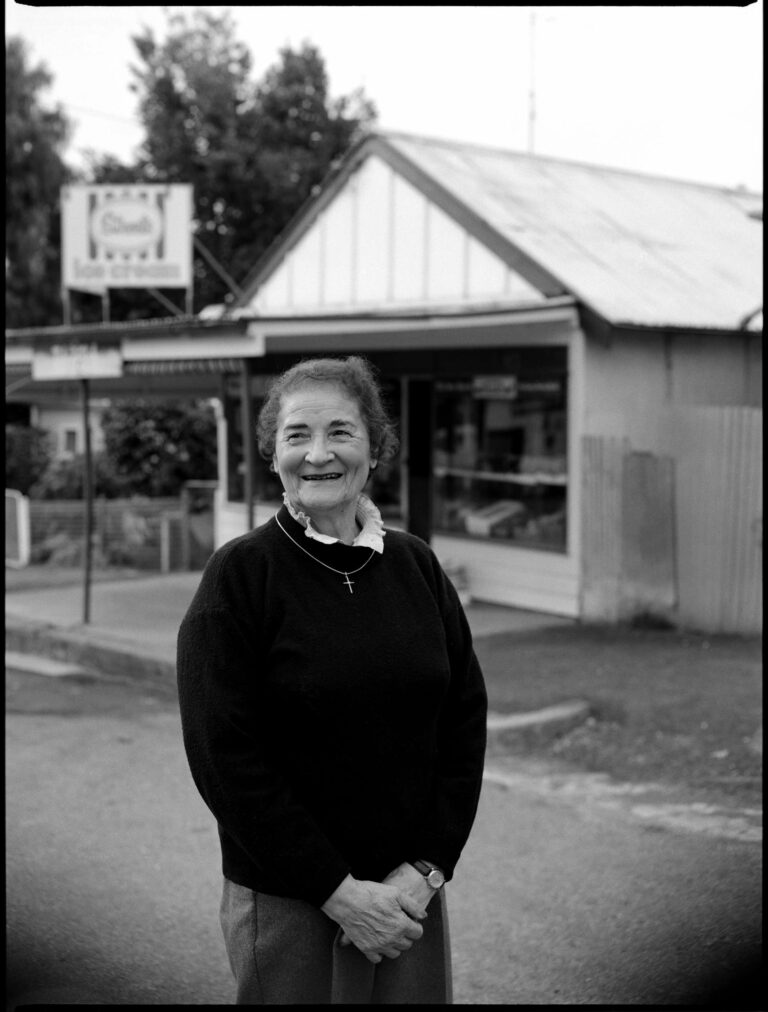
Forty Photographs – A Year at a Time
Effy Alexakis
28 March – 3 April 2022
N. Smith Gallery
6 Napier Street, PADDINGTON, NSW









